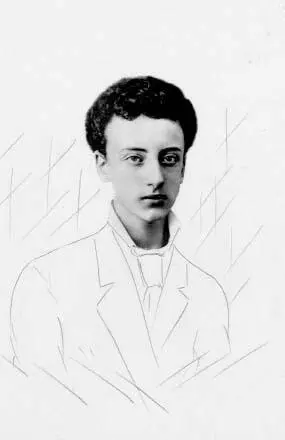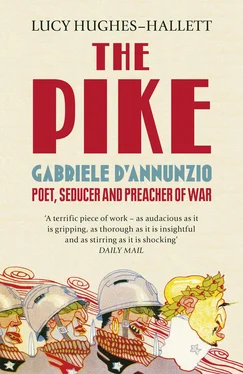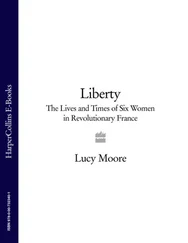
Scarfoglio will lament that, only a few months after that first meeting, the androgynous innocent is on his way to becoming a smart young man about the booming capital. ‘I will never forget how stupefied I was, the first time I saw Gabriele all spruced up and perfumed for a party.’ At the age of twenty, d’Annunzio (seen by Scarfoglio as being like a ‘timid, wild girl’) will demonstrate his worldly ambition and his virility by impregnating and eloping with a duke’s daughter. At the age of twenty-six, already the author of four volumes of poetry and two of short stories, as well as of reams of knowing, gossipy journalism, he will publish the first of his novels.
1893. D’Annunzio, now aged thirty, is living in Naples. He left Rome to escape from his creditors, and before the end of the year he will have to scarper from Naples for the same reason. He has written three novels and dozens of stories which are beginning to make money, but never enough to pay off his exorbitant debts. He has abandoned his wife and three sons, and left Elvira Fraternali, whom he loved passionately for eight years. Now he is living with the Sicilian princess Maria Gravina, together with whom he faces a jail sentence for adultery (a general amnesty will spare them). His writing – as scandalous as it is brilliant – and his flamboyant lifestyle, his debts, his duels and his love affairs, have made him, by this time, an international celebrity.
During this period of his life, in personal terms so harum-scarum, the groundwork of d’Annunzio’s political thinking is being laid. He has been reading Nietzsche and finding in the philosopher’s work confirmation of his own elitism. Acting the pike again, he makes provocatively Nietzschean declarations. ‘Man will be divided into two races,’ he writes. ‘To the superior race, which shall have risen by the pure energy of its will, all shall be permitted; to the lower, nothing or very little.’ D’Annunzio never doubts his own membership of the former class.
Now he is enthralled by Richard Wagner. D’Annunzio adores music, but he is not himself a musician. To hear it he must seek out those who are. He goes repeatedly to call on the composer Niccolò van Westerhout and prevails upon him to play entire operas on the piano, while he follows the libretto, going through Tristan and Isolde at least ten times. He is learning to hear the patterning of reprise and variation, to feel the great surges of emotion released by the music and to understand how they are controlled. He keeps van Westerhout at the piano for hours and hours. ‘Tristan filled his spirit with a kind of morbid obsession.’ He insists on hearing certain passages over and over again. He is transfixed by the ‘sufferings that begin with the love potion’.
At home he is in desperate straits. The bailiffs are encamped outside the door of his borrowed lodgings. Maria Gravina’s sanity is precarious. But d’Annunzio has the knack of closing himself off from all emotional and practical demands. The musical sessions with van Westerhout pass straight into his influential essay on Wagner and into his suicide-haunted novel Il Trionfo della Morte (The Triumph of Death), in which the lovers spend days on end playing and singing Tristan and Isolde together, before the hero drags his mistress over a cliff in an involuntary liebestod (love-death).
Later that year Maria Gravina will try to kill herself. His wife has already attempted suicide.
August 1895. D’Annunzio is sunbathing stark naked on the deck of a yacht bound for Greece. He has recently received his largest payment to date, for the French edition of his first novel, Piacere (Pleasure). Among his fellow guests on the cruise is his French translator, Georges Hérelle.
Hérelle is disappointed. He has been looking forward to earnest literary discussions interspersed with serious sightseeing, but d’Annunzio seems only to want to bask in the sun while swapping smutty jokes with the other young Italians on board, and fretting about the difficulty of getting his shirts properly ironed ready for dinner engagements in port. When they go ashore at Eleusis, Hérelle notes that d’Annunzio ‘hardly looks, chatting all the time of things which have nothing to do with our excursion; about amorous adventures, about society people’. On train journeys he doesn’t feast his eyes on the passing landscape, he puts a silk handkerchief over his face and dozes. In Patras and again in Piraeus he goes off, almost as soon as they’ve landed, to find a prostitute. ‘Truly,’ notes Hérelle in his journal, ‘there is something puerile about Gabriele d’Annunzio.’
What Hérelle doesn’t grasp is that d’Annunzio’s mind works so fast he doesn’t need to gaze at length in order to receive impressions, or to preserve a solemn silence in order to reflect upon what he sees. Within days of returning from the cruise he will start planning his first play, La Città Morta (The Dead City), inspired by the party’s visit to Mycenae. Eight years later he will write his modern epic, Maia. The visit to a Patras brothel which Hérelle found so sordid (‘These awful women … these sailor’s women … I cannot understand how in Greece one can waste time so foolishly’), will appear transmuted into a half comic, half profoundly sorrowful episode in which Helen of Troy, terribly aged, symbolises the transience of the pleasures and beauties of the flesh.
December 1895. The Caffè Gambrinus, Florence. André Gide, who is in the café with him, is watching d’Annunzio carefully. ‘He is greedily eating little vanilla ice creams served in cardboard cones. He talks with charming good manners without, I think, making much effort … Nothing about him suggests literature or genius. He has a little, pointed, pale-blond beard, and he speaks with a clear voice, rather icy but soft and wheedling. His glance is quite cold: perhaps he is cruel, or perhaps it is his refined sensuality that makes him seem so to me. On his head he wears a plain black bowler hat.’
Since returning from Greece, d’Annunzio has begun his relationship with Eleonora Duse. He tells Gide: ‘I have read Sophocles under the crumbling gates of Mycenae.’ This reading must have been brief – d’Annunzio’s visit to Mycenae was over in time for lunch – but the claim fits with his sense of himself as heir to the great classical tradition, and with the project he and Duse are cherishing. They want to build an amphitheatre in the Alban Hills and run it as an al fresco national theatre where d’Annunzio’s plays will be performed in tandem with those of the Greek tragedians.
The talk turns to contemporary European literature. D’Annunzio tells Gide that he dislikes Maeterlinck’s ‘banality’ and Ibsen’s ‘lack of beauty’. He knows all the French authors’ work.
‘With a smile I say to him: “But you’ve read everything!”
“What can you expect?” he says, as though to excuse himself, “I am Latin.’’’
Being ‘Latin’ is very important to d’Annunzio’s sense of self. Later it will become the dominant theme of his politics. He calls all Anglo-Saxon or Germanic people ‘barbarians’.
‘I’m a terrible one for work,’ he tells Gide. ‘For nine or ten months of the year, non-stop, I work twelve hours a day. I’ve already written a score of books.’ This is only a slight exaggeration. D’Annunzio’s love life is so scandalous that the public thinks of him as a dilettante, but the majority of his time is passed in near solitude and intensely concentrated effort. ‘When I write,’ he says, ‘a sort of magnetical force takes hold of me, like an epileptic. I wrote L’Innocente [his second novel] in three and a half weeks in an Abruzzese convent. If anyone had disturbed me, I would have shot him.’
Читать дальше













